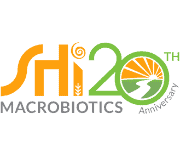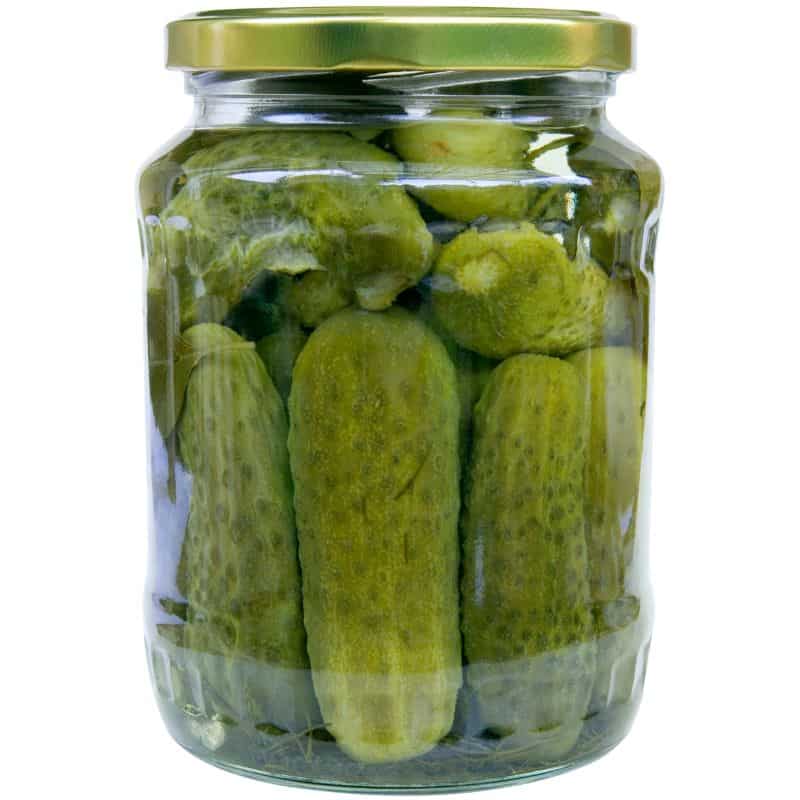Strong health means a strong gut. The gut is central to the strength of the immune system, mental sharpness, and ability to synthesize and absorb nutrients. However, the gut health declines from consumption of processed, refined and fatty foods. These foods are dehydrating, lack in fiber, nutrients and probiotics. When the gut becomes weak, overall health becomes poor and the body becomes susceptible to illness. Therefore, it is key to get the probiotic health benefits of pickled vegetables and other naturally pickled and fermented foods to start healing the gut and building back our health. Learn all the health benefits of pickles and find an easy pickled recipe by Susan Waxman below.
Pickling vs Fermenting
Pickling is a general term for the different ways foods are preserved in a type of salt brine (salt + water), whether a quick or long-term pickle.
Fermenting does not rely on salt such as vinegars or wine. The key to health benefits of pickles is salt. Salt breaks down vegetables to be more easily digested. Also allows for probiotics and good bacteria to grow and build. In the quick pickled cucumbers recipe below, we use umeboshi vinegar, a pickling brine, made of umeboshi plums, sea salt and red shiso. This delicious vinegar gives pickles the acidic and sour taste, as well as, produce probiotics and good bacteria. (Here is a tea recipe with umeboshi plums)
Keep in mind, pasteurizing or heating the pickles for a period of time will destroy much of the bacteria and reduce the health benefits. That is why it is important to naturally pickle and ferment foods.
Do store bought pickles have probiotics?
Most do not. Many large branded pickles on the shelves have been pasteurized and processed to preserve the pickles for longer storage time. Additionally, often they are only stored in vinegar with no salt brine. This creates the sour pickle flavor but without the same probiotic benefit.
Health Benefits of Pickles
There are numerous health benefits of pickles. Here are a few to be aware of:
- Naturally pickled and fermented foods are a great source of probiotics. Don’t forget the body needs both prebiotics and probiotics. Prebiotics are the fiber in grains, beans, vegetables, seeds, nuts and fruits.
- The probiotics create a healthy environment in the gut. The health benefits of pickles is good microbes are able to flourish while bad microbes cannot.
- Naturally pickled and fermented foods improve and strengthen the immune system. When the gut is weak, harmful microbes overtake the intestines then infect other parts of the body. But probiotics from pickles will support the gut to be able to prevent bad microbes from thriving and eliminate any others.
- The health benefits of pickles includes aiding in digestion such as bloating and constipation.
- Naturally pickled and fermented foods improve mental clarity. Food sets the stage for how we feel physically and mentally. Problems with memory and thinking clearly come from a weak gut and unhealthy lifestyle.
- Probiotics greatly improves the benefits from all other foods. When eating a plant-based diet of grains, beans, vegetables, seeds, nuts and fruits, probiotics help the gut to better synthesize and absorb all prebiotics, nutrients, and minerals.
- One of the biggest benefits of pickles is neutralizing unhealthy foods. The modern diet is high in acidic foods. The acidity changes blood quality and diminishes capacity of hemoglobin combining with oxygen. Hemoglobin is the protein in red blood cells that carries oxygen and carbon dioxide back and forth from the lungs. When hemoglobin becomes less efficient in delivering oxygen to vital organs, fatigue sets in. Adding naturally fermented pickles to our diet can neutralize this acidity, improve hemoglobin function, and energize the body.
Other Foods High in Probiotics
Miso, shoyu, sauerkraut, tempeh, unyeasted sourdough bread and olives are other great probiotic foods when naturally pickled and fermented. (Get a miso soup recipe here.)
How Often and How Much Should I Eat Pickles?
Get all the health benefits of pickles by enjoying them with one meal a day and an average serving of 1 to 2 tablespoons. Pickles are fermented which may mean a high amount of sodium. Use pickles sparingly especially if salt sensitive. (Learn more about sea salt vs refined salt.)
Susan’s Quick Pickled Cucumbers
The best way to get health benefits of pickles is naturally pickling and fermenting them at home. It is easy just try this recipe by Susan Waxman!
Preparation time: 10 minutes Fermentation time: 3 hours Serving size is approximately 1 to 2 tablespoons
Ingredients
- 1 to 2 cucumbers, washed, cut in half lengthwise, seeds removed
- 1 part umeboshi vinegar (*Umeboshi vinegar: This vinegar is extracted from the Japanese ume plum.)
- 4 parts water
Preparation
- Slice the cucumber on the angle in 1⁄2-inch to 1-inch-thick slices.
- Place the cucumber slices in a bowl.
- Use a liquid measuring cup to measure the liquid ingredients and pour liquid over the cucumbers to cover.
- Cover the bowl with a sushi mat or cheesecloth and place in a cool, dark area to ferment for 3 hours.
- Use within 24 hours so that the pickles stay crispy and fresh.
Want more recipes and macrobiotic meal plans? Then pre-order Denny and Susan Waxman’s new book “The Ultimate Guide to Eating for Longevity: The Macrobiotic Way to Live a Long, Healthy, and Happy Life” on Amazon. Or get started with one of our macrobiotic courses to begin turning sickness into health and start practicing basic macrobiotic principles.




SHI relies on your support.
This content is possible because of donations from people like you. If you valued this article then take a moment and make a donation to benefit the SHI community. Any amount truly makes a difference.
Give $25, $50, $75, $100 or a different amount that makes sense for you.
Donate Now